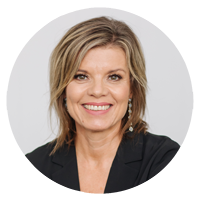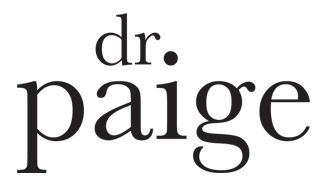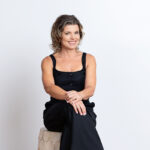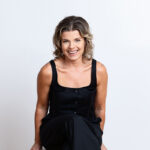Are You Ready To Play a Bigger Game?
Have you noticed what’s it’s like to work with people you like?
Communication is clearer and smoother; the work seems to take less effort and gets done more quickly and when things don’t go to plan – which will inevitably happen at some point – it’s easier to talk about it, which means issues get resolved more quickly and with less drama.
Oh, and did I mention that it’s a lot more enjoyable too?
And that’s important because our brains function differently when we’re in a positive emotional state in ways that help us be creative, problem solve and make connections that we might not otherwise see.
These kinds of relationships are abundant in what’s called relational energy. Research suggests that people who generate positive relational energy – positive energisers – are higher performers, and are four times more likely to succeed than people who have power or knowledge.
Just think about that for a moment…
Positive relational energy trumps formal power or knowledge by 400% in terms of outcomes and performance.
This is because of something called the heliotropic effect, whereby all living systems have a tendency to move towards positive energy and away from negative energy. Just as plants grow towards the sun, we also flourish in the presence of positive energy. Studies have found this impacts us at the cellular level, which is why more areas of our brains are activated when we experience positive emotions.
Once you understand this, it’s probably not surprising that in the research I did recently, quality of relationships is also one of two key factors that impact accountability.
Relationships and Accountability
A lack of accountability keeps us fragile. It impacts everything we do, whether that’s eating more healthily, being more active, meeting project milestones or preparing for our weekly team meeting. Without it, what we say we’re going to do becomes little more than wishful thinking.
And that’s a real issue, because social groups, including your team and your organization, depend on accountability to function effectively.
So how does the quality of relationships impact accountability?
When relationships are based in fear, they lack trust and safety. As a result, people avoid interaction; they ‘muddle through’ rather than ask for help, hide mistakes and defend under-performance. The result is drama, stress and a lack of learning, progress and performance.
These are Barren accountability relationships, as they are lifeless and lack the nutrients to produce growth.
In contrast, Fruitful accountability relationships are fueled by positive relational energy.
They have high levels of trust and psychological safety; people are engaged in the relationship, feel able to ask for help and support when needed, and they communicate clearly, regularly and honestly about their progress.
As a result, growth, development and progress are made, and good outcomes follow.
Importantly, you don’t have to be ‘best buddies’ with someone to have a fruitful accountability relationship. High levels of positive relational energy come from behaviors such as showing concern for others, being flexible in thinking, valuing others and even something as simple as smiling.
Importantly, they are all attributes that can be developed.
So if you’re currently facing an accountability challenge, take a moment to think about the quality of relationship that’s involved. And if it could do with some positive energy fertilizer to help it become more fruitful, here are three ideas for you to play with:
Value what’s present
Our natural negativity bias means that we can get stuck in noticing what’s going wrong in a relationship rather than what’s going right. This can be particularly true when we’re in the midst of accountability challenges and we can fall into a reinforcing loop of biases that simply reinforce our beliefs.
To circuit break this cycle of negativity, take a few minutes to complete some or all of these sentences about your accountability relationship partner:
- The special contributions you make to our team are…
- The unique strengths or talents that I see you demonstrate are…
- Here is an example of when I have seen you do this…
And next time you’re in conversation, look for an opportunity to share one or all of these with that person.
Role model learning
In order to build trust, our teams need to know that they’re safe when things go wrong. Role modelling is an important way to create a psychologically safe culture – whether that’s in a one-to-one accountability relationship or a team. I’ve written previously about the unique role that leaders play in both creating and consuming culture. By talking about when things have gone wrong for you and what you’ve learned through the experience, you’ll role model trust with the group and create permission and safety for others to do the same.
Lead with Love
I did a whole blog on this last year, and when you look at this through the lens of building fruitful accountability relationships, it means that we shift the purpose of our accountability from being something that is punitive and discussed after things have gone wrong, to being what set’s us up for success from the start. This is a paradigm shift to what I’m currently seeing with the leaders and organisations I’m working with. How can you approach your next accountability conversation with this quote in mind?
“Accountability is an act of love. When I hold you accountable, I’m saying, I see the greatness in you. You can play a bigger game.”
Want more?
You can read more about how leaders can take a more effective approach to accountability in the e-book I’ve written based on my research, The Accountability Reset. Just click here to download it.
Time to talk?
If you’d like to talk about how we can work together to help you, your leadership team or your organisation reduce fragility by resetting accountability. Simply click here and I’ll be in touch.

Dr Paige Williams
International Speaker, Author, Mentor
Determined to help leaders move beyond just the need for resilience, Paige provides practical, evidence-based strategies for leaders to become antifragile, lead themselves and their teams to thrive and succeed in the Decade of Disruption.






